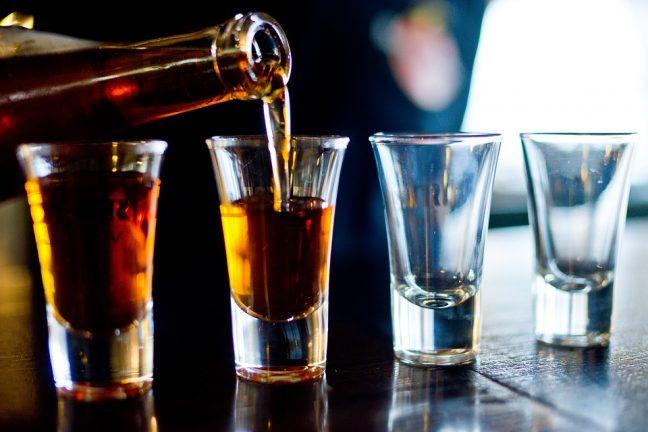New research at the University of Wisconsin surrounding the effects of alcohol access found no evidence to corroborate parental supervision arguments supporting a lowered drinking age.
UW public affairs professor Jason Fletcher published a research paper earlier this month on how legal alcohol access can increase under-explored risky behaviors associated with drinking. His research examined how binge drinking can vary at different ages, and he found legal access to alcohol increases binge drinking as people transition from age 20 and 20.5 to 21.
“It’s just a piece of evidence that should be in the debate,” Fletcher said. “I don’t think it tells us for sure whether we should lower the drinking age or not, but I think it does highlight that whether or not it’s lowered there might be a reason to further target information.”
He conducted this research in response to policy proposals from Wisconsin lawmakers in 2017 to lower the state’s legal drinking age to 19 — so teenagers can start using alcohol under parental supervision. According to the National Institutes of Health, no U.S. state has had a legal drinking age below 21 since the 1980s.
To find out if legal alcohol use under parental supervision caused certain consequences — like binge drinking, drunk driving, violence, relationship issues and risky sex — Fletcher compared preexisting national data from Add Health (a national study of adolescent health) of 21-year-olds living at home and those who were not to see if there were any jumps in risky behaviors.
UW professor finds link between alcohol consumption and cancer
Fletcher said he could see why people might think the legal drinking age should be lowered — young adults could transition into legal alcohol use while living with their parents rather than outside the home. However, his research does not support this.
“We did not find differences for individuals living at home,” Fletcher said. “They seem to have the same set of consequences as people who weren’t living at home around the age of 21.”
In fact, Fletcher said young adults living with their parents have a larger increase in risky behaviors associated with alcohol use than those who do not live at home — a conclusion that surprised even Fletcher.
Not only did Fletcher’s research conclude self-reports of consequences like binge-drinking, drunk driving, risky sex and violence increased at age 21, but he also found effects were considerably higher for men than women.
Women — like men — reported an increase in binge drinking when they turned 21, according to Fletcher’s study. But unlike men, women did not report cases of drunk driving, fighting or risky sex. On the other hand, the report showed men faced an increased risk of problems with friends and sexual behavior at age 21.
Fletcher said he wasn’t surprised that men faced more risky behaviors than women, though he added it was surprising there were no detectable consequences for women in the behaviors he examined.
“I can’t measure everything in this data,” Fletcher said. “It could be that there are many consequences for women and binge drinking right after they turn 21 that aren’t measured in this data set that are there, and real, and important.”
According to University Health Services substance abuse prevention specialist Jenny Damask, drinking at a young age brings up implications for dependency. People who started drinking before age 13 are 48 percent more likely to become dependent on alcohol — at 21, they’re only 9 percent likely.
“It always comes up — whether or not we should be looking at the legal drinking age,” Damask said. “But I think it’s nice to have people do this kind of research to help inform us as these discussions come up.”
Fletcher said it would be reasonable for universities to increase outreach to 21-year-old students — particularly male students — to remind them that even after alcohol use becomes legal there are still consequences.
Bill would change citations for serving alcohol to underage drinkers
Alcohol is a depressant to the central nervous system of the body, Damask said. No matter what age, any individual who uses too much numbs the effect of neurons that send messages from the brain to the body. As a result, students might skip class as a result of a hangover, for example.
“There’s a lot of negative consequences associated with individuals drinking,” Damask said. “It’s not just the issue of the individual’s health and wellness, but it could affect the community that’s around them.”
Damask said UHS works at the program and policy level to combat substance abuse. AlcoholEdu is a tool that provides incoming freshmen and transfer students information on risk reduction strategies and bystander intervention.
AlcoholEdu is also a way to collect data on the incoming class to see how their behavior changes as they adjust to campus life. That data is used to create programs and has also determined some policy changes at the university housing level, according to Damask.
“With the legal age being 21 or older, a lot of [the university’s] population cannot drink legally,” Damask said. “It’s good that we have research to support the current law because it helps us hold people accountable and limit the availability of alcohol.”













